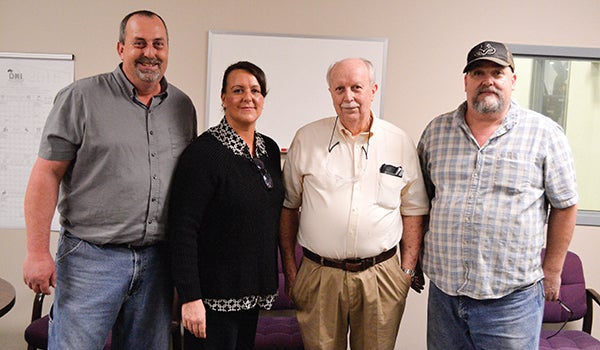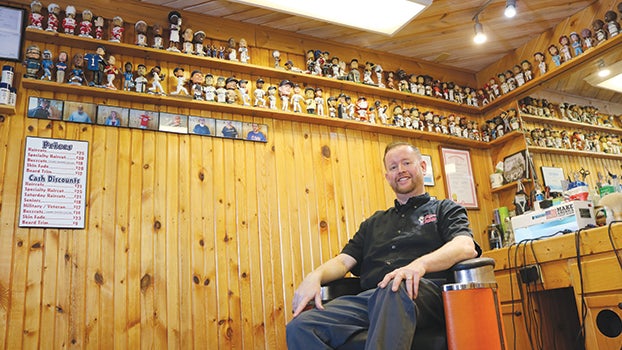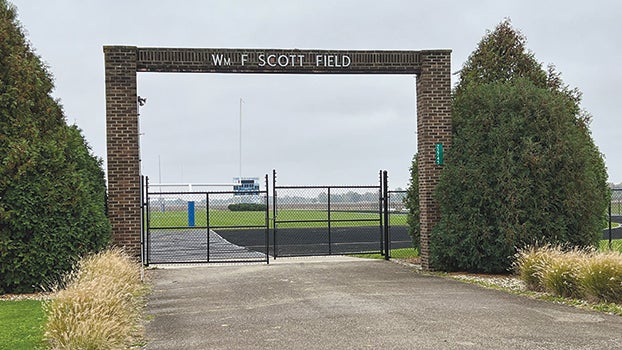For Delta Machining, robots are key to job growth
Published 1:55 pm Friday, March 1, 2019
Modern technology has revolutionized society and left a trail of obsolete equipment in its wake. It is hard to picture a time when we picked up a map instead of punching an address into our cell phone or listened to the squeal of the internet connection.
With the advent of machines that can turn on our lights, lock our doors and play our favorite song with a mere voice command, it may seem that these advances have made life simpler and safer. However, on the factory floors, some fear technology could mark an end to a variety of jobs.
For one Niles company, utilizing a fleet of machines has given their business an edge that has aided customer demand and allowed for the addition of more workers in human form.
Looking out on the factory floor of Delta Machining in Niles, machines resembling industrial-sized ovens are whirring away. The company uses roughly 50 to 60 computer controlled machines, equipped with a belt that carries more than 120 tools.
Much like an oven, these robots, known as CNC machines, are cooking up the next product batch, while company employees attend to other tasks.
Tucked along Reum Road, Delta Machining started with humble roots in 1978. Founders Wannis Paris, Bill Robison and Barry Freeman can recall being doubted by neighboring manufacturers.
With more than 40 years of experience under their belt and a growing business that has found a niche creating refrigerator and air compressor parts for industrial machines, the entrepreneurs have proven the skeptics wrong.
Parris, the company’s president, said the business could in part attribute growth to technology and the robots that can keep up with a growing workload.
“Technology generates jobs here. It does not take away jobs,” said Parris, the company’s president. “Everybody thinks of a robot as taking away more work. Well, you got to have skilled people that will maintain those robots, install them and maintain them to be used for all the different applications.”
Customers also put confidence in a manufacturer that is up to date on modern technology, Parris said.
“[Then] there’s more work coming,” Parris said. “We have to have the ability to get it done and that means applying technology and skills.”
Parris said the company has plans for expansion in the works. Within the next three to five years, they hope to add on to their factory floor and hire 20 more employees.
Taking a chance
Parris grew up on a farm in Alabama. He was in his 20s when he packed his bags and moved to Niles to pursue his first manufacturing job at Henco. The once burgeoning company produced aerospace parts, teaching him some crucial tricks of the trade. It was through Henco that Parris met Robison and the two became friends. When a customer at Henco suggested the pair go into business for themselves, the entrepreneurs decided to take a leap of faith and follow the advice.
They opened Delta Machining at a facility on Carberry Road and shared the facility with Pieta Tool. Not everyone believed that the young businessmen had any idea what they were doing. It was there that Robison overheard one of the other company’s associates remark: “Those hillbillies won’t last a year.”
Parris laughs when he recalls the comment. He said he harbors no ill feelings toward the company and they even beaome friends after that incident. Still, Parris said the associate did not realize Delta’s potential.
“They were great people and really skilled people in their trades,” Parris said. “They just misjudged us. … They did not realize our ambition, I guess.”
Modernizing the factory floor
When Parris, Robison and Freeman first went into business, they did not have the luxury of coding a robot to create parts. Instead, they spent hours of tedium making goods with hand-cranked machines. In stark contrast, Parris said the factory’s CNC machines move at 2,000 inches per minute.
By 1981, the company had purchased three CNC machines. Within five years, the company expanded. Two additional buildings were purchased at Reum Road, where the company is located now.
Parris’ son, Keith Parris, currently a sales manager for Delta Machining, has worked for the company for 32 years. In that time, he said he has seen
the company continue to evolve with the
changing technology.
“It constantly seems like it is changing or upgrading,” Keith said. “Sometimes we have gotten rid of some of the machines that are too old and not worth having.”
Keith credits his father for investing in technology.
“Sometimes on a yearly basis [he reinvests in technology],” Keith said. “He’s always been able to get another machine in or other technology that keeps us a little ahead of the wing.”
There are aspects of using modern technology that can make things a little more complicated.
One thing the company struggles with is finding more workers, especially younger workers interested in picking up the tricks of the trade. Delta tries to inspire younger workers to get involved in the company, offering help with tuition to workers who want to get job experience while pursuing a degree.
Using machinery means those who start out on the factory floor have to understand how to use coding to tell the machines what to do (one wrong number and the machines could be damaged). While the company wants youth with technology experience, having an understanding of how the manual tools work to create a part is also essential.
In 2018, Delta celebrated 40 years of business. Since its start, the company has grown from three entrepreneurs to employing almost 80 people. Parris said plans are in the works to expand the building and hire more people. As to whether machines played a role in that growth, Parris said technology had been a friend, not a foe.
“If it were not for us keeping up as well as we do on technology, we would be outdated,” Parris said. “We would not be where we are at.”







